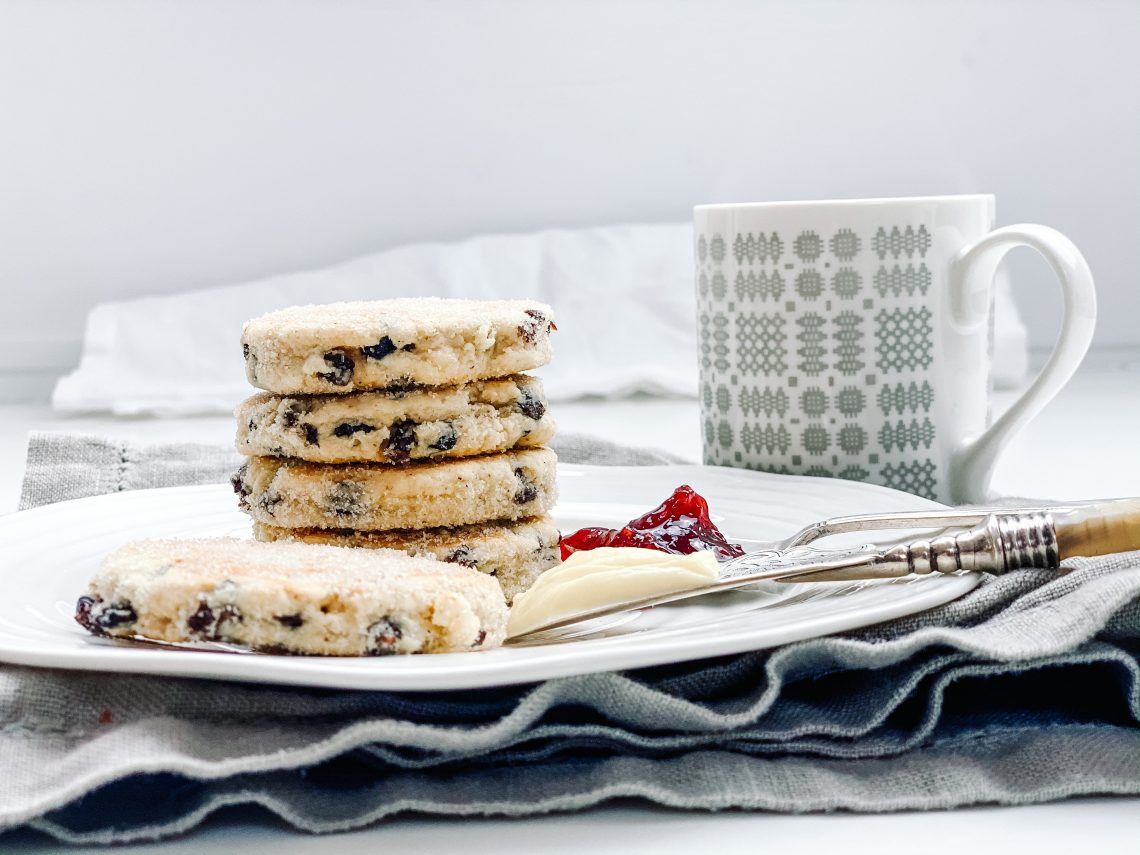
Welsh Cakes
With St David’s Day around the corner, I thought it was about time I posted my recipe, or rather, my grandmother’s recipe, for Welsh Cakes. Perfect timing if you fancy some baking this weekend.
Made from flour, butter, sugar, currants, egg and a dash of milk, they are similar to scones. However, they are cooked on a griddle or bake stone, and out of necessity, are thinner, so that they can be cooked through without burning. After cooking, they are coated in caster or granulated sugar and traditionally, served warm, just as they are. However, I guarantee, that should you be tempted to add some salted butter and/or some jam onto your warm cakes, you will love them even more!
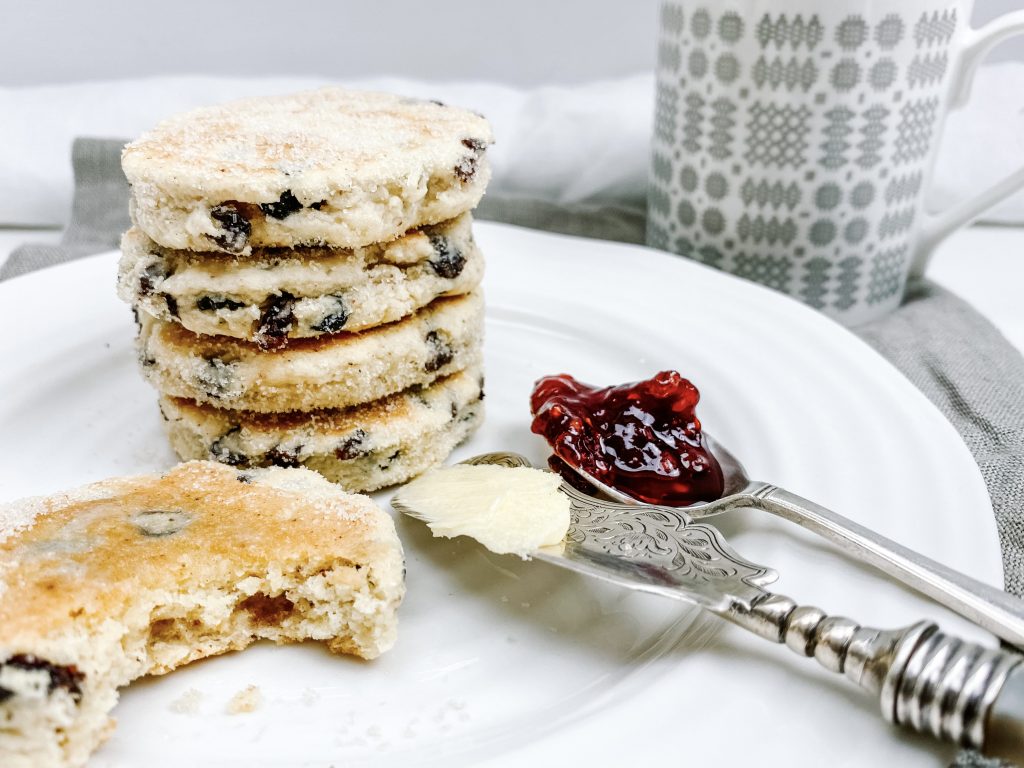
St David
St David, or Dewi Sant, is the patron saint of Wales. His precise date of birth is unknown but is generally thought to be around 500AD and his death is generally acknowledged to be 1st March 589AD. Born in Pembrokeshire in south west Wales, David was a devout monk and early vegetarian. Renowned, with his fellow monks, for only eating bread, salt and herbs, he drank no alcohol, only water. His monastic code made few allowances for creature comforts, with the monks refusing to use animals to help them tend the land they farmed.
David is the only British/Irish saint to be born in the country of which he is patron. He is associated with many miracles, including restoring the sight of his teacher, raising a young lad from the dead and also raising the ground to create a hill so his congregation could see him. He became celebrated as a teacher and preacher, founding monastic settlements and churches in Wales, Dumnonia (now known as Devon and Cornwall) and also in Brittany.
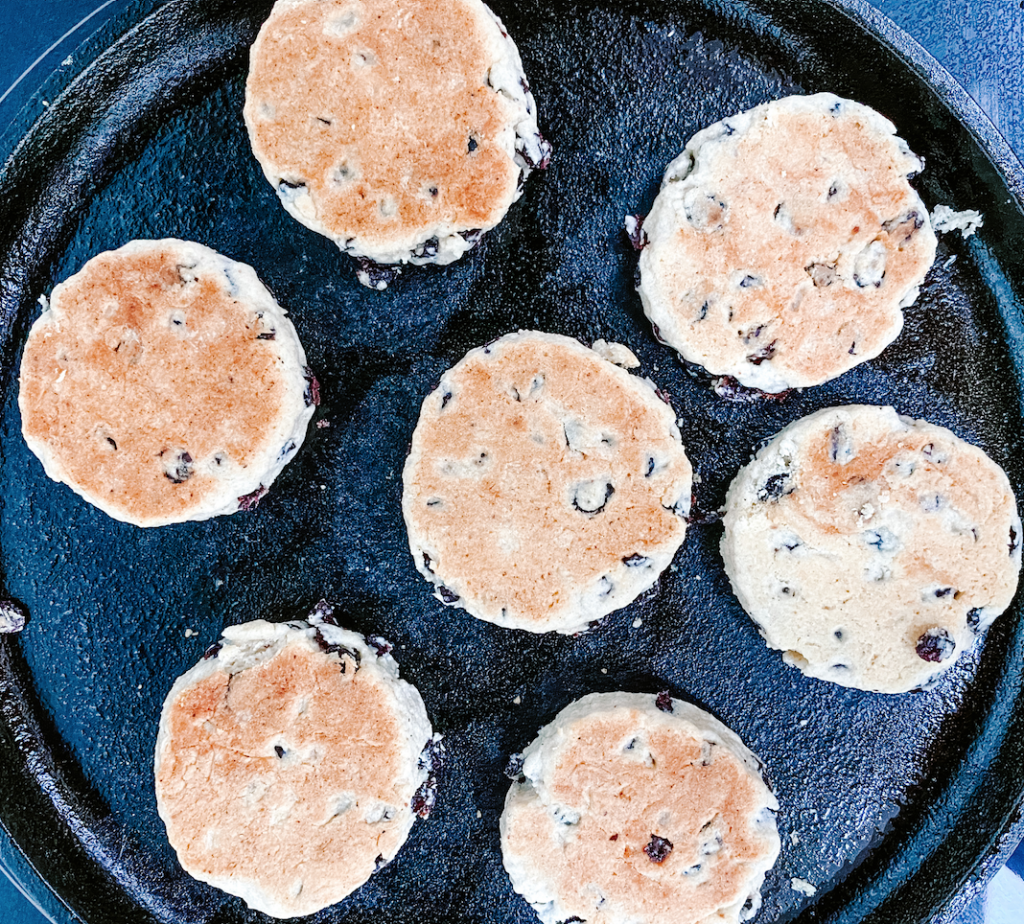
‘Do the little things’ or ‘Gwnewch y pethau bychain’
St David’s last words to his followers are recorded as: ‘Be joyful, keep the faith, and do the little things that you have heard and seen me do.’
‘Do the little things’ or ‘Gwnewch y pethau bychain’ is a well-known phrase in Wales and the maxim by which St David lived his life. It suggests that life isn’t about grand gestures, but more about the regular, small gestures we should all make, in order to support and benefit those around us.
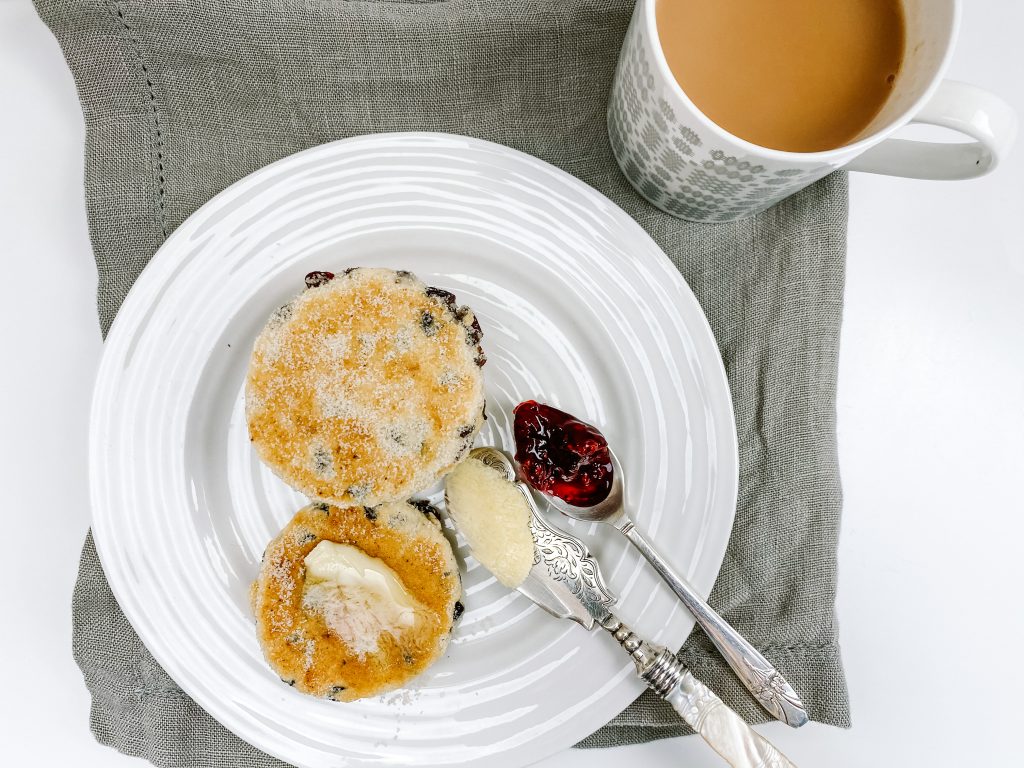
How to make Welsh Cakes
Collect all your ingredients together:
- plain/all-purpose flour
- baking powder
- grated nutmeg – or use mixed spice and/or cinnamon (optional)
- fine salt
- unsalted butter, fridge cold and cubed
- lard or vegetable shortening, fridge cold and cubed
- caster sugar
- milk
- large egg
- currants, or you can use sultanas and/or raisins
- vegetable or groundnut oil or a small knob of butter
- extra caster or granulated sugar to dip the Welsh cakes into when cooked
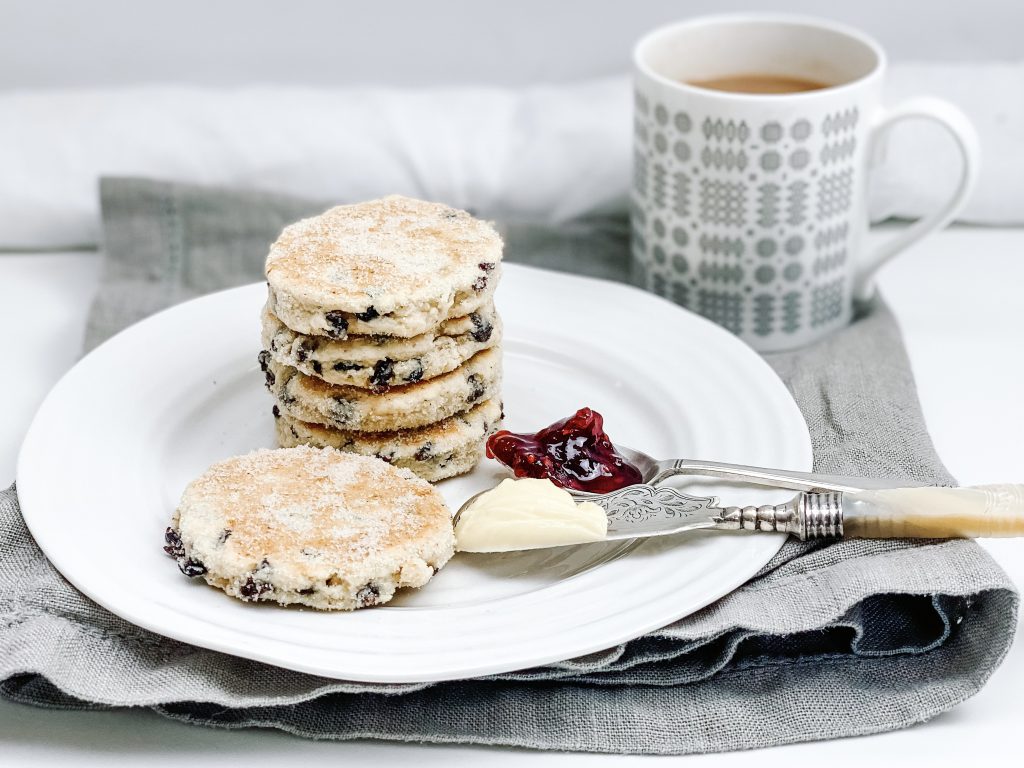
Now make those cakes!
- Put the flour, baking powder, spice, (if using) and salt into a food processor. Add the butter and lard and process until you get fine breadcrumbs.
- Add the sugar and pulse until well mixed.
- Beat the egg with 1 tablespoon milk, add to the flour mixture and process until the mixture starts to comes together. Add the remaining ½ tablespoon milk, only if necessary.
- Tip the mixture out of the food processor onto a lightly floured work surface, add the dried fruit to the centre of the ingredients and mix in with your hands as you bring the dough together into a ball.
- Roll out to approximately 5mm thick and cut out your Welsh cakes with a cutter. I use a 6cm/2.5in cutter but you can make them smaller or bigger. Re-roll and cut out any leftovers. If the dough feels like it is sticking onto the work surface, release with a palette knife before cutting out.
- This mixture makes around 24 – 25 Welsh cakes, depending on the size of the cutter you use. They are best eaten fresh, so I cook only what we will eat that day. The remainder, I either freeze or keep covered in the fridge, separating each cake with a small square of baking parchment.
- To cook: lightly grease the base of a cast iron griddle or baking stone or you can use a heavy frying pan. I use a little (around ½ – 1 teaspoon) oil, which I drizzle on and then wipe around with kitchen paper. You can also use a small knob of butter.
- Heat the pan on a medium to medium to medium-low heat. When hot, cook just 1 cake to see if the pan is at the correct temperature. I like to cook the cakes on a medium heat initially (later turning it down to medium-low) for roughly 2½ – 3 minutes on each side until lightly browned and cooked through. If you cook them for less, the inside may not be cooked and if you cook them for much longer, they can dry out.
- If the cakes are cooking too quickly, turn the heat down – your pan will heat up, the more you cook, so keep an eye on it and adjust the heat to ensure you are cooking for 2½ – 3 minutes per side!
- When cooked, immediately transfer to a plate with caster sugar and cover both sides. Eat as fresh as possible – they are gorgeous whilst still warm – either as they are, or with butter and/or jam.
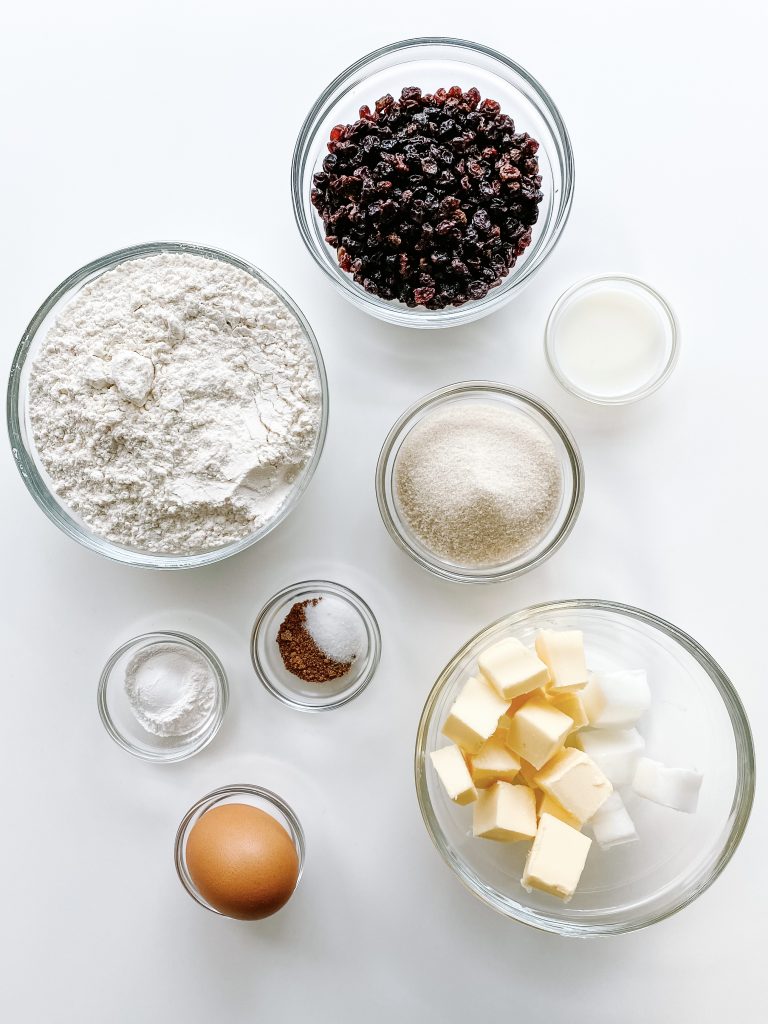
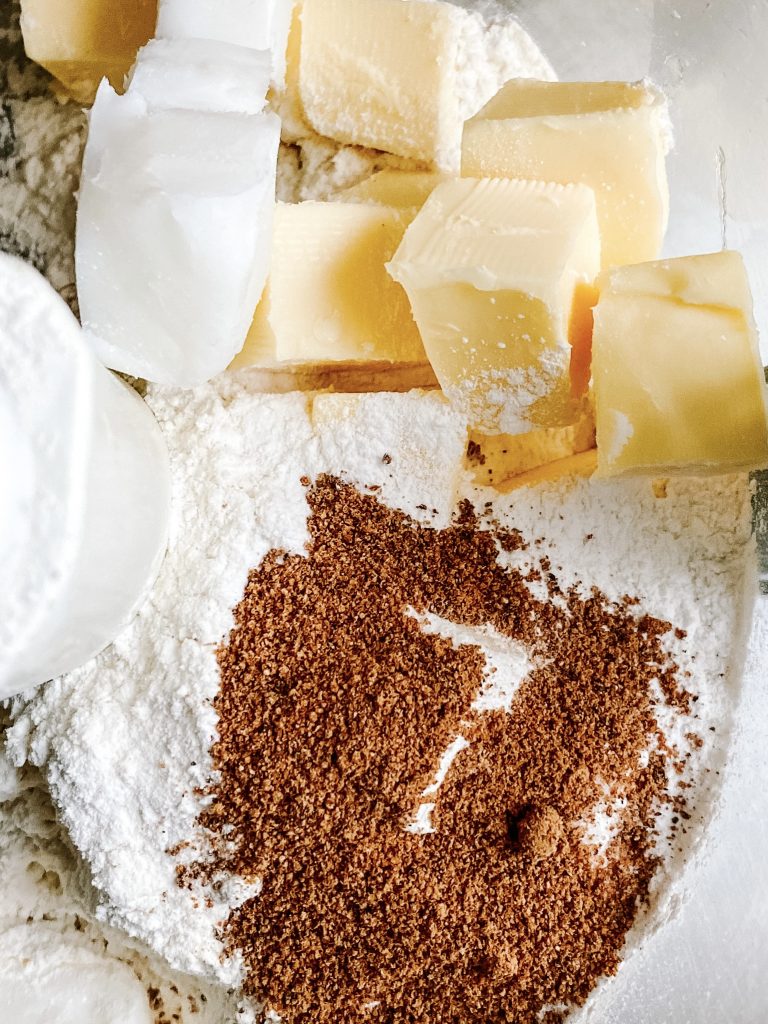
1 Flour, baking powder, salt, spice & butter .. 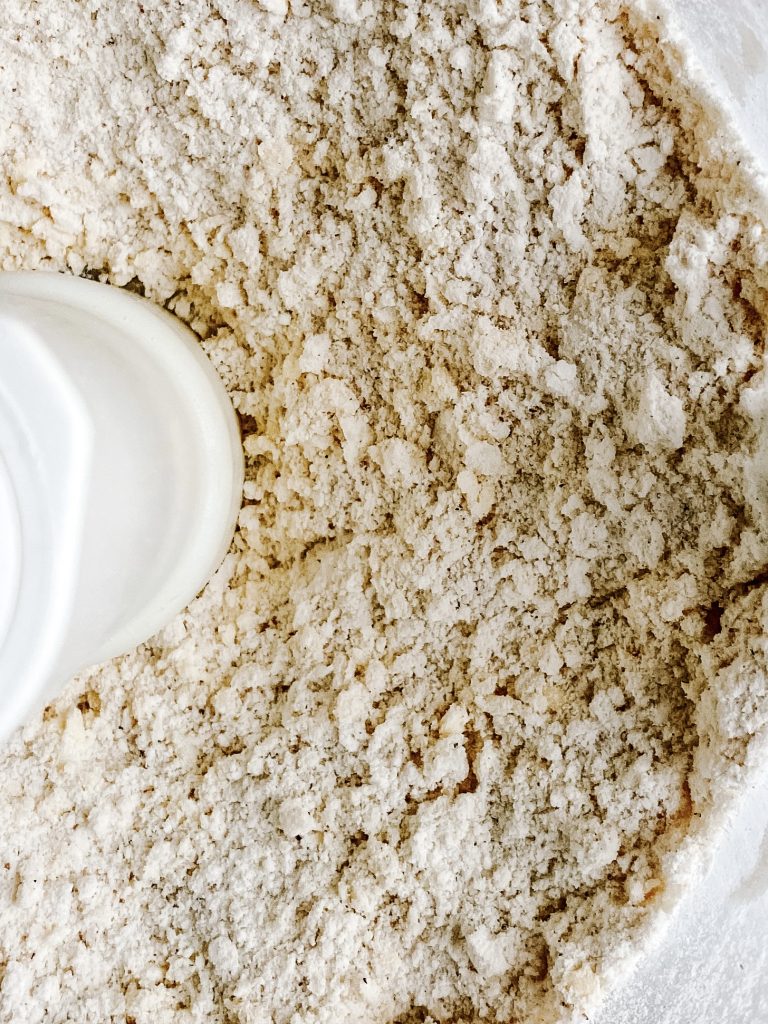
in food processor and blitz until breadcrumbs 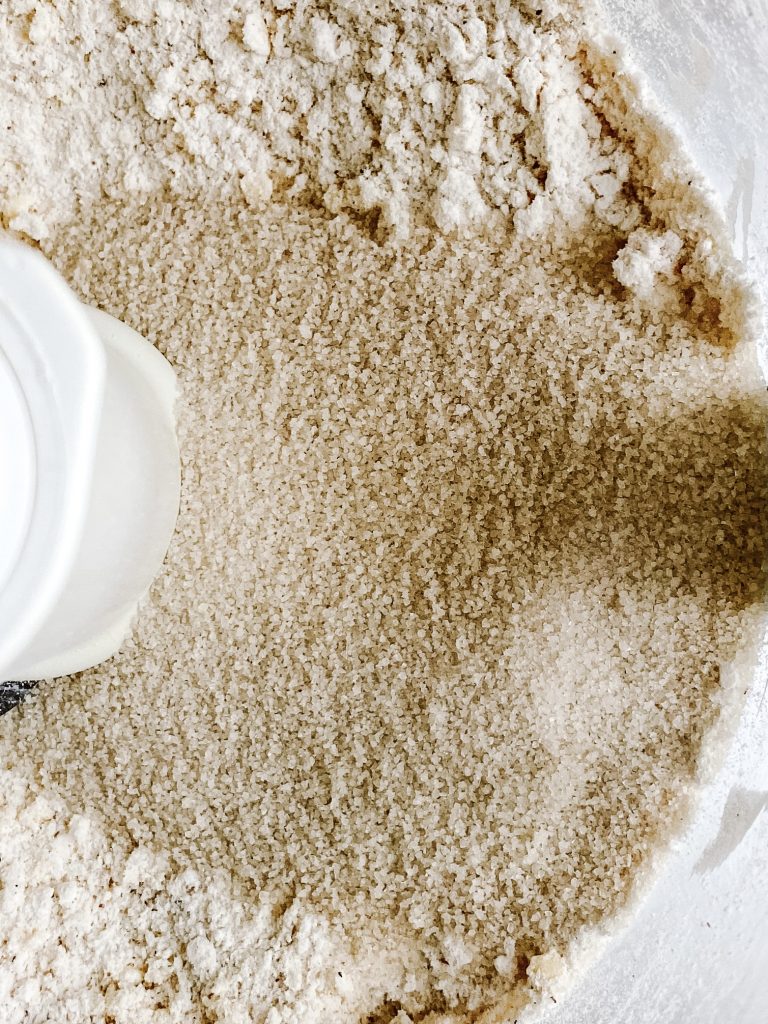
2 Add sugar and pulse.. 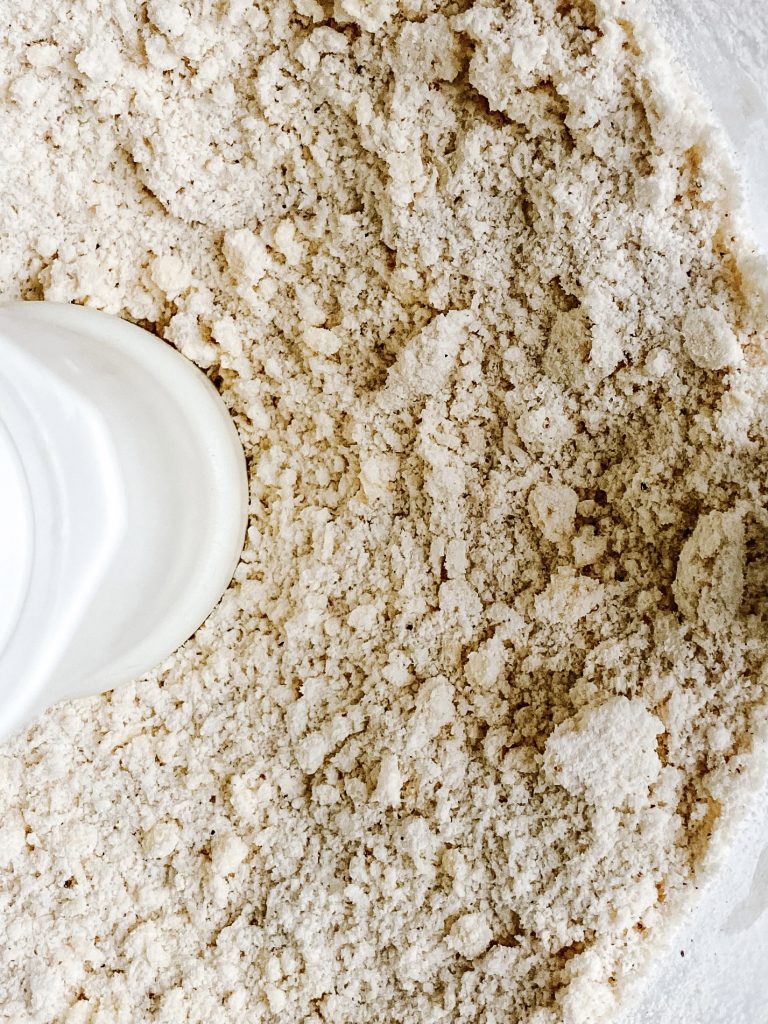
.. to mix 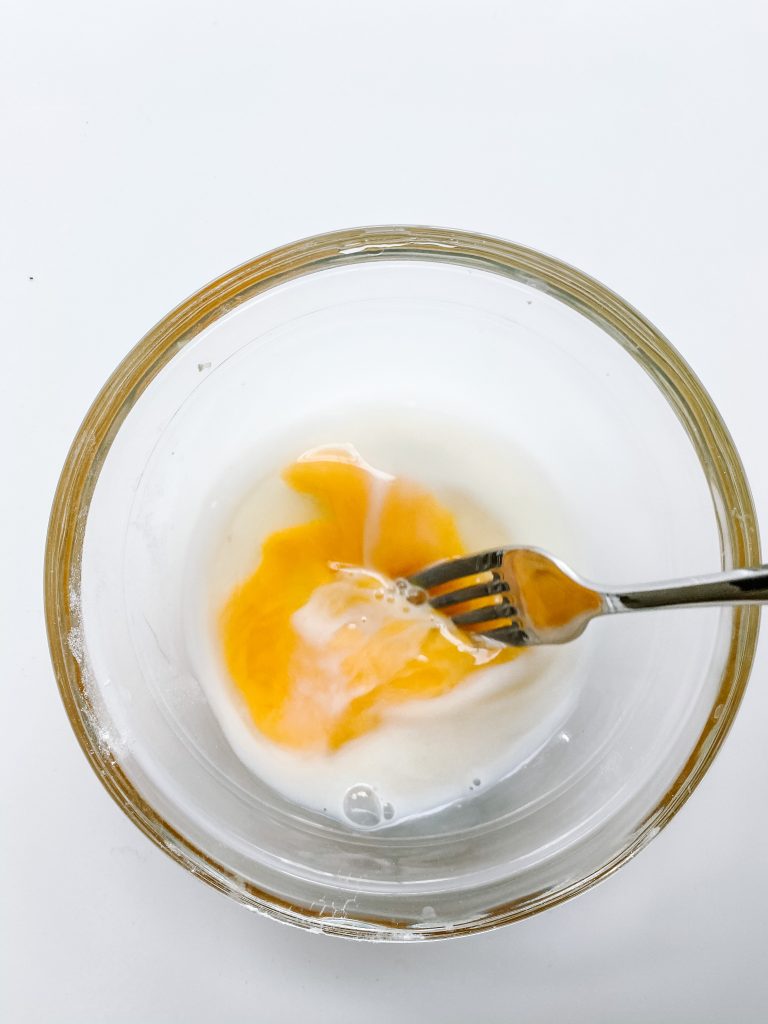
3 Beat egg with 1 tablespoon milk .. 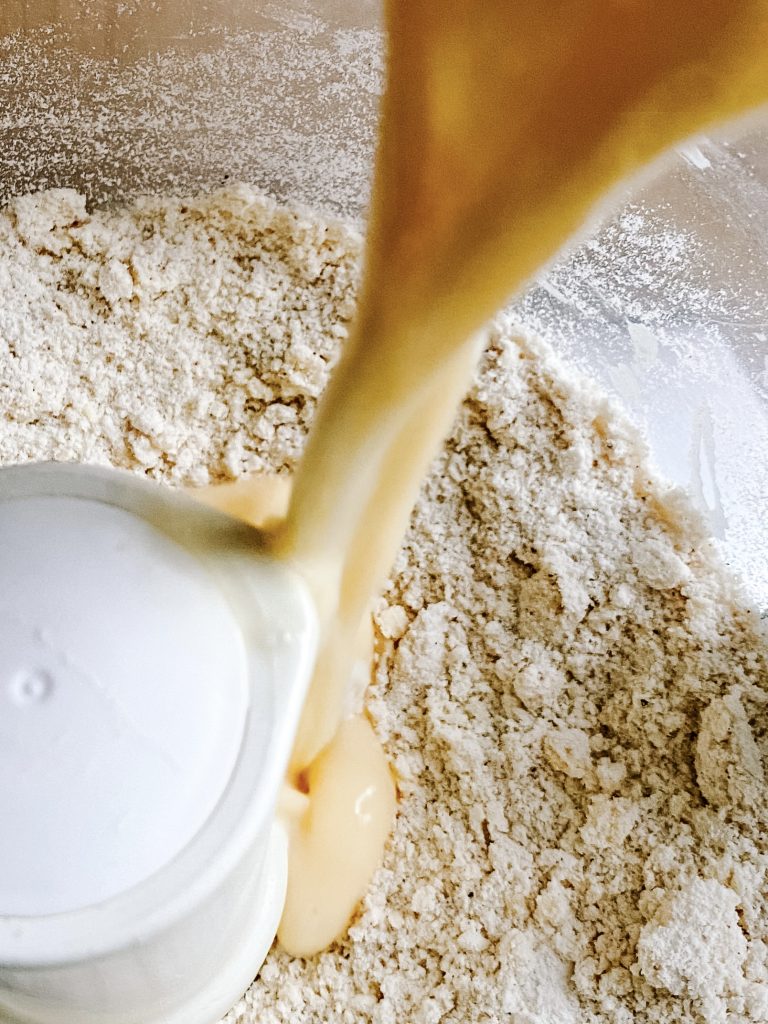
.. add to food processor and pulse … 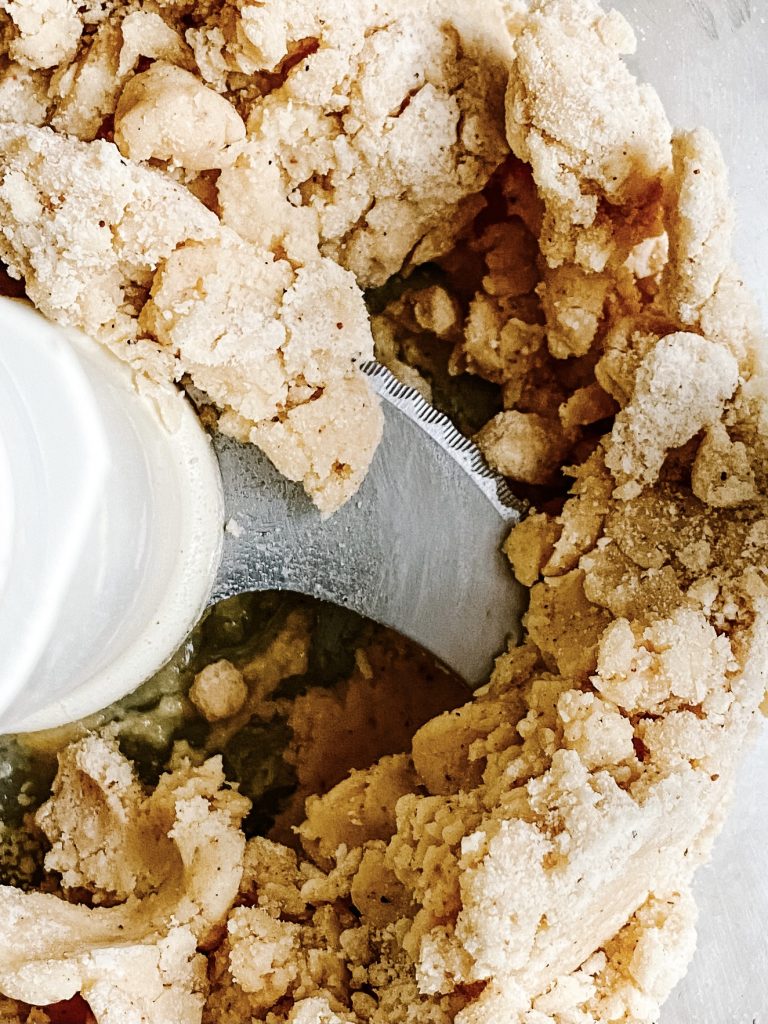
… until it starts to come together 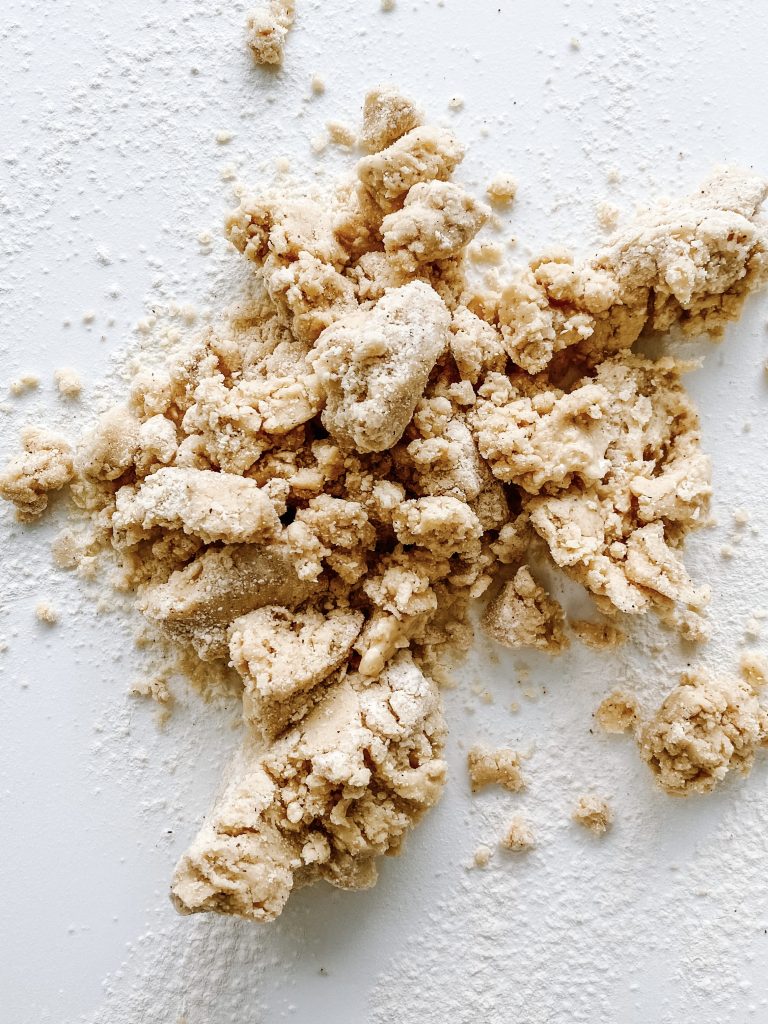
4 Tip onto floured work surface … 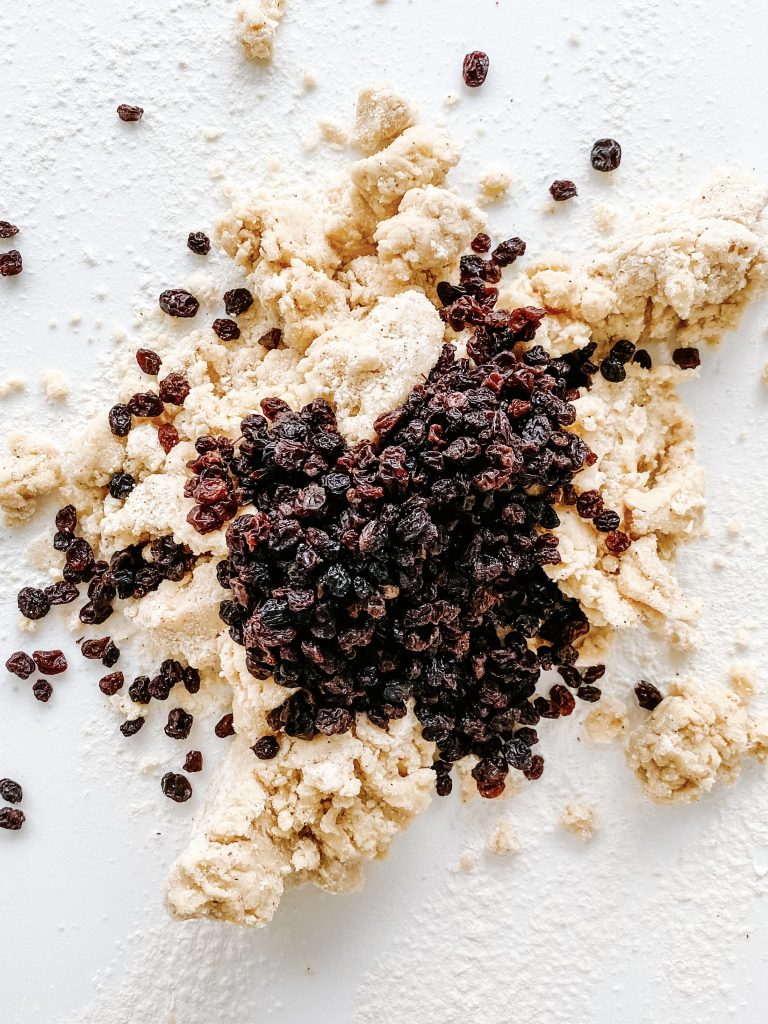
… add dried fruit and … 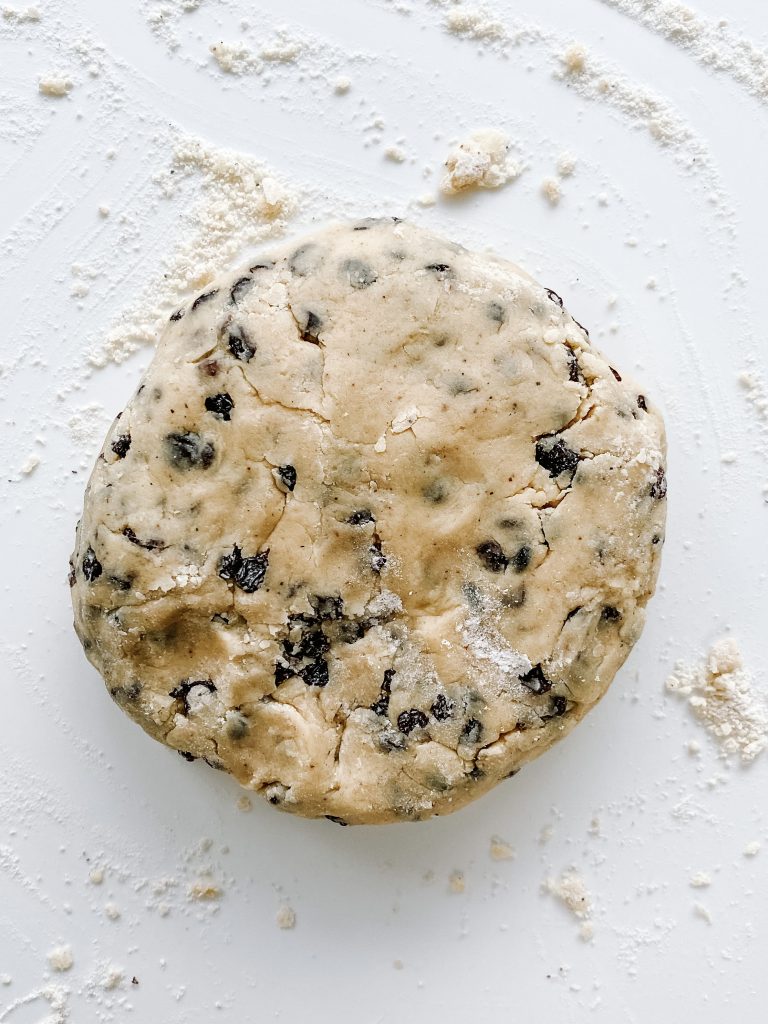
… bring together with your hands 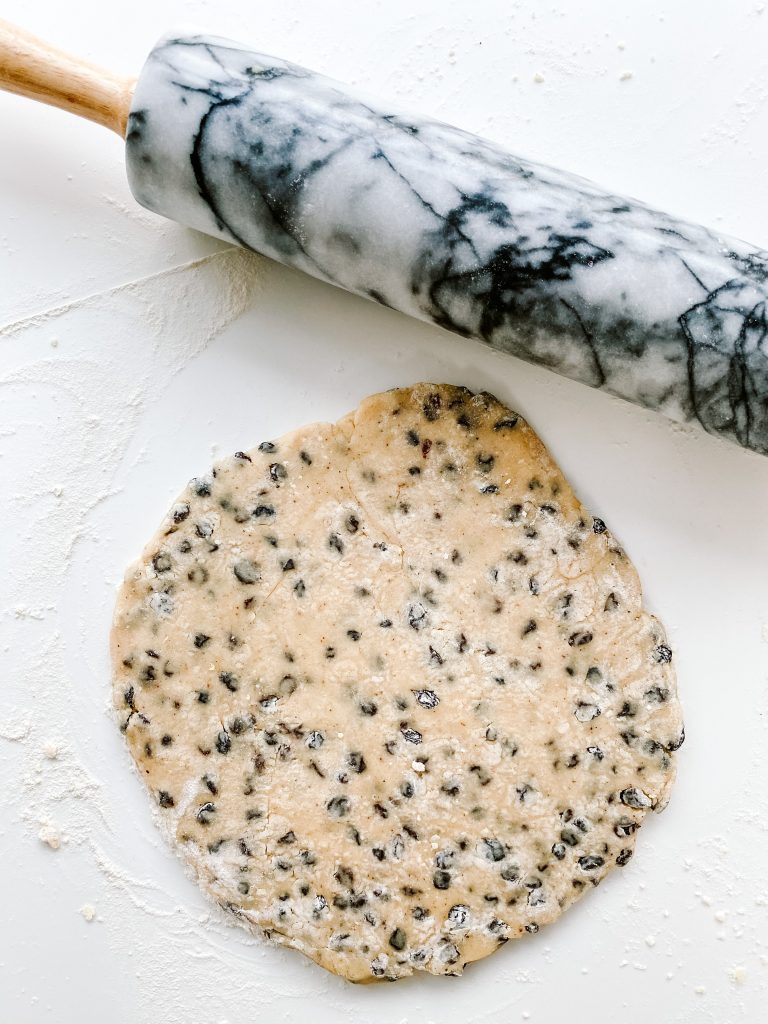
5 Roll out to 5mm thick and cut out with a cutter .. 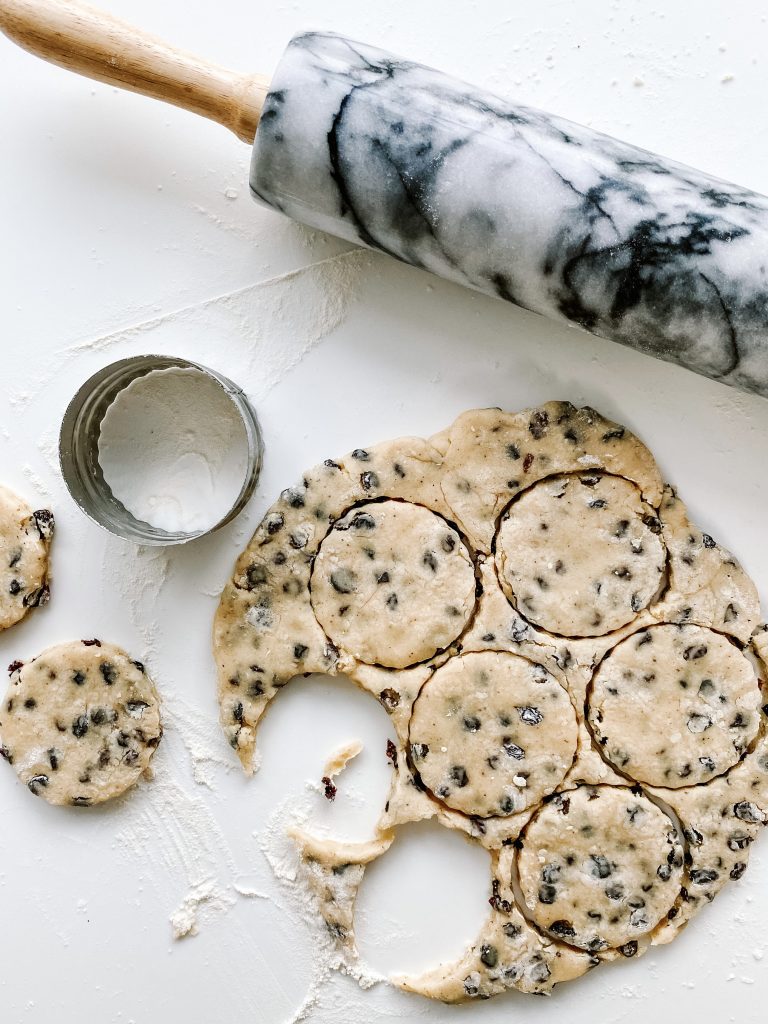
.. I use a 6cm/2.5in cutter 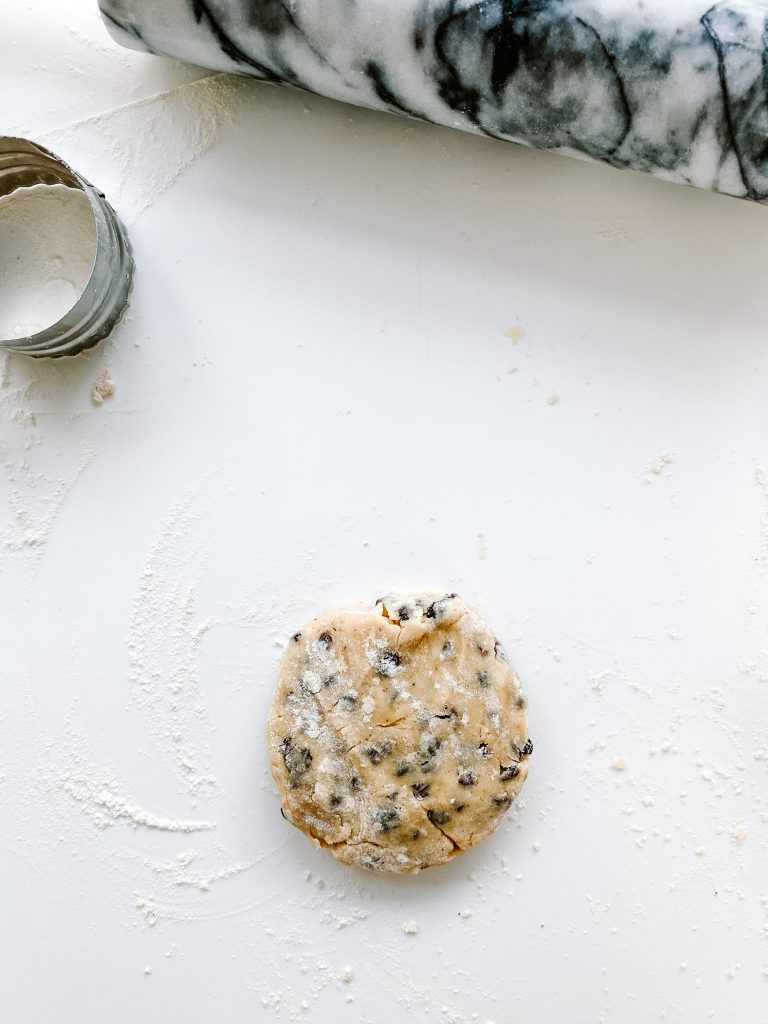
Re-roll any leftovers 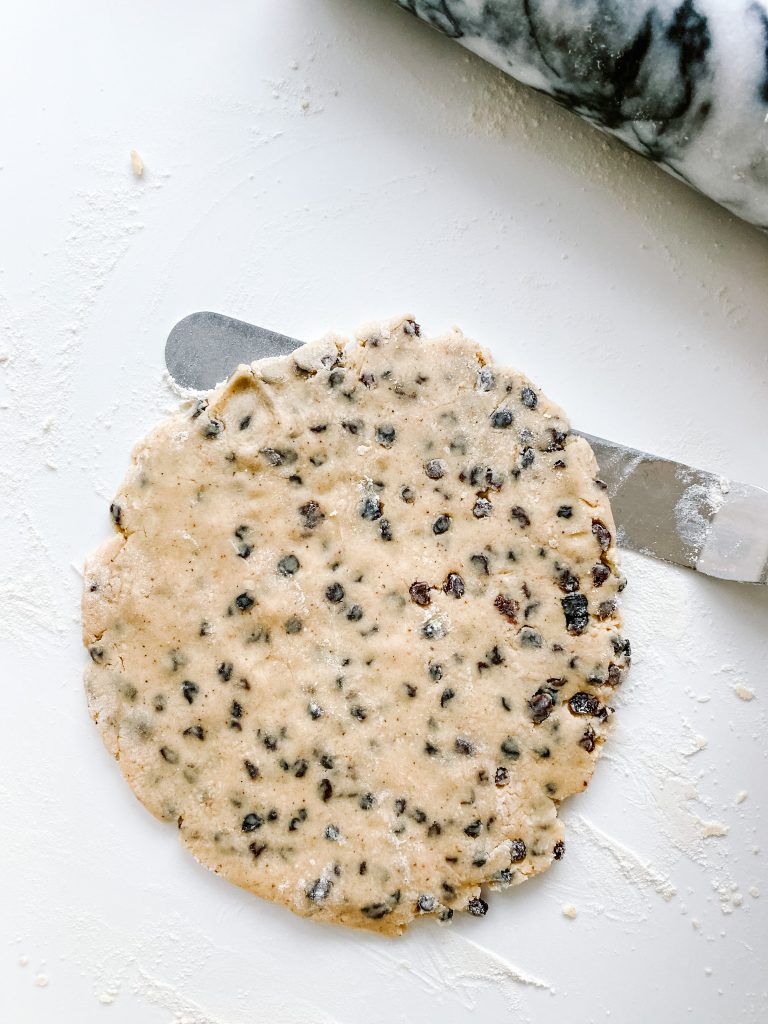
Release with a palette knife if it sticks to the work surface 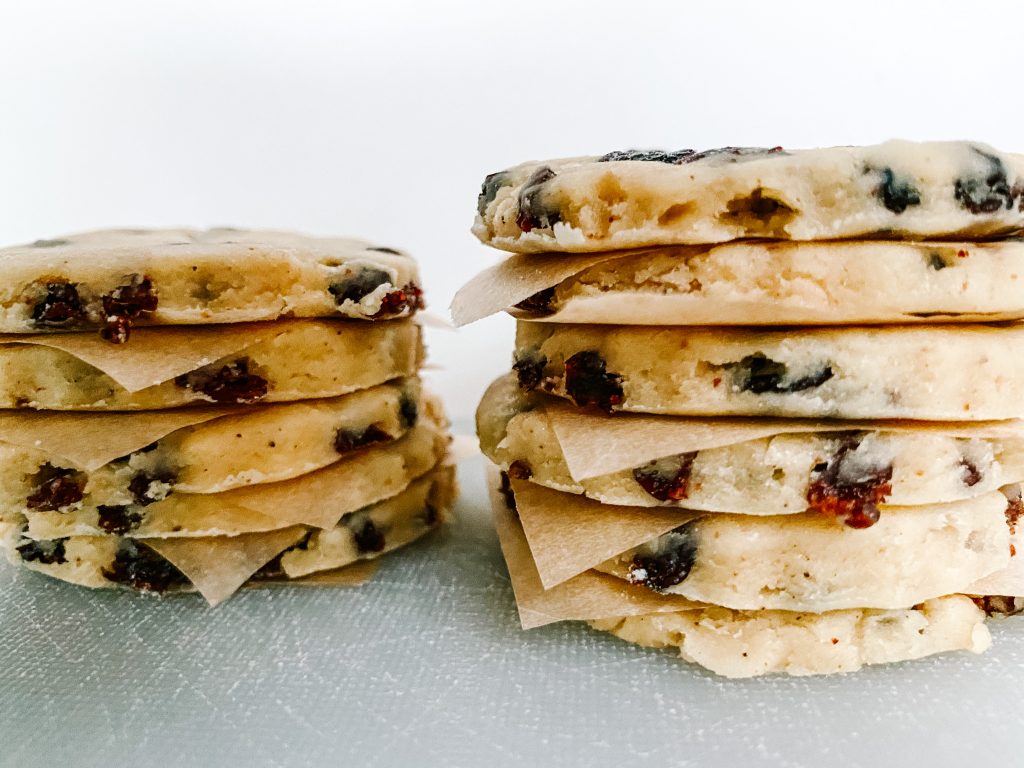
6 If not cooking all of them, keep in the fridge or freezer 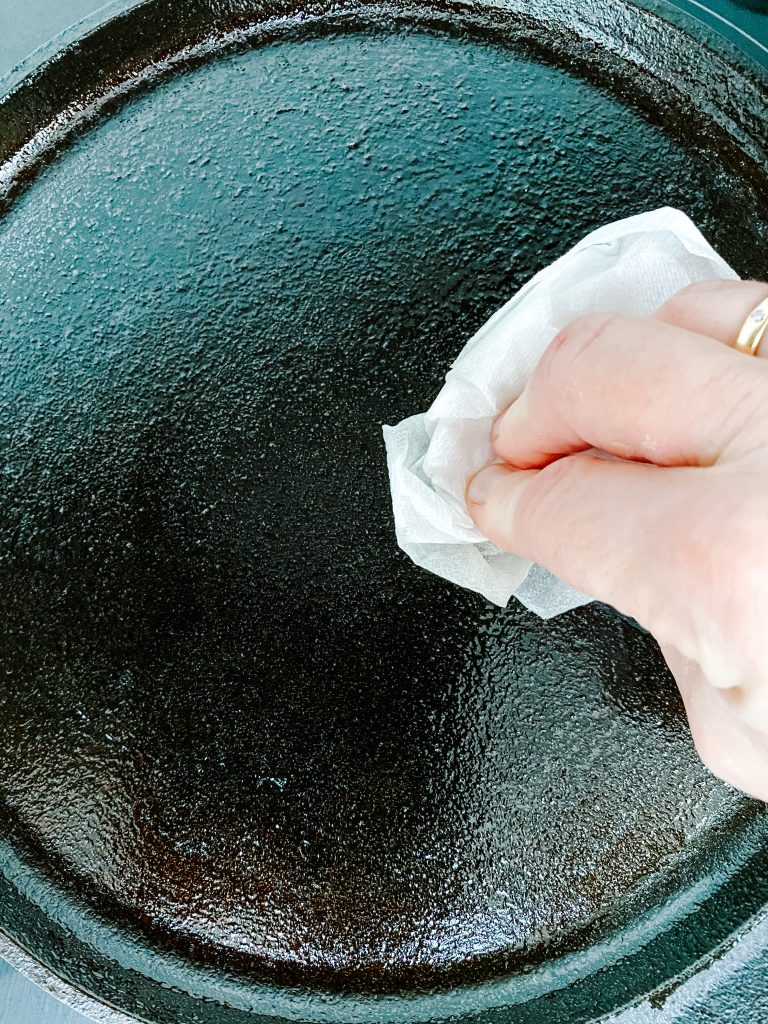
7 Grease a cast iron griddle or bake stone 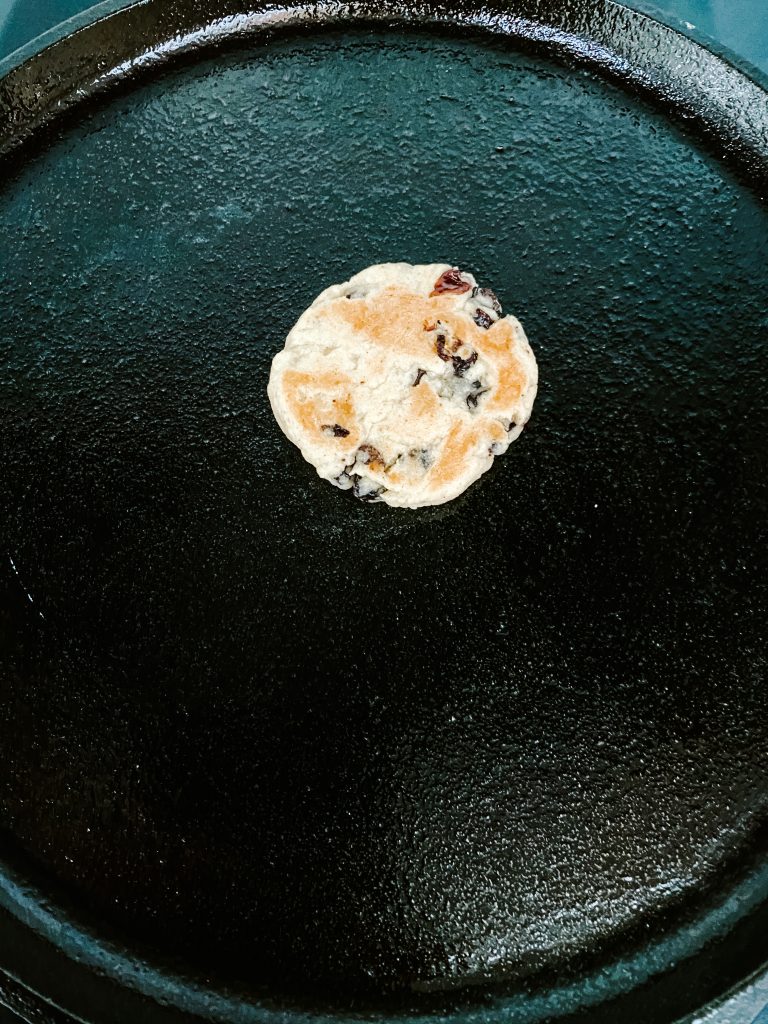
8 Cook 1 cake as a test 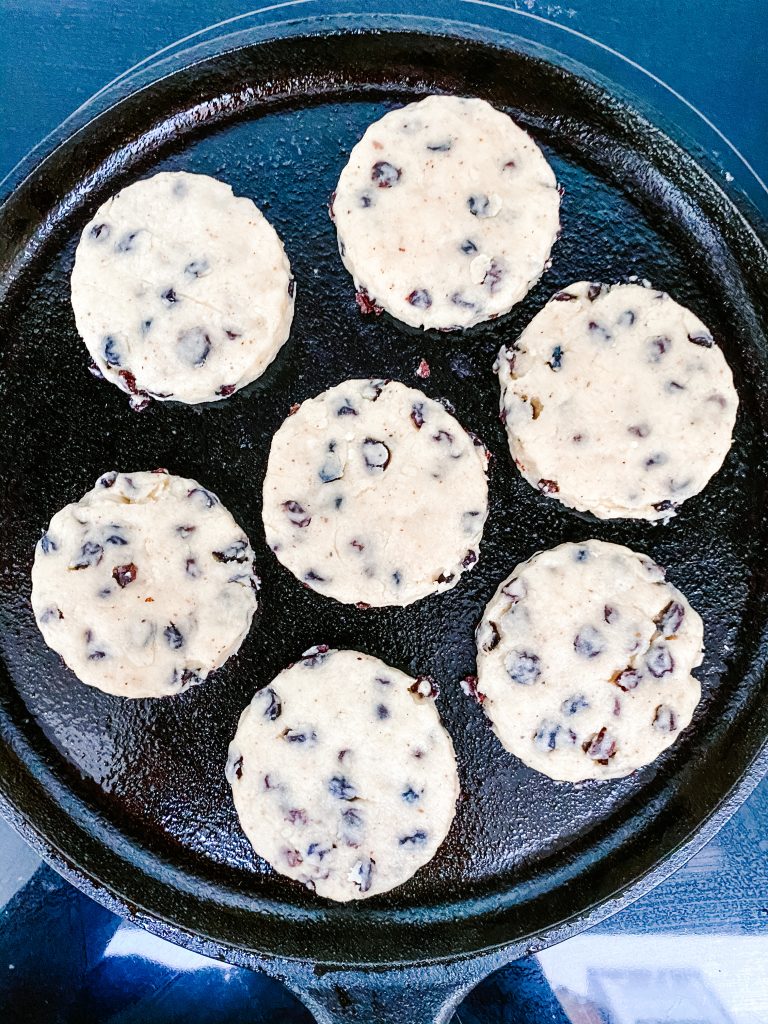
9 Cook the cakes for 2½ – 3 minutes .. 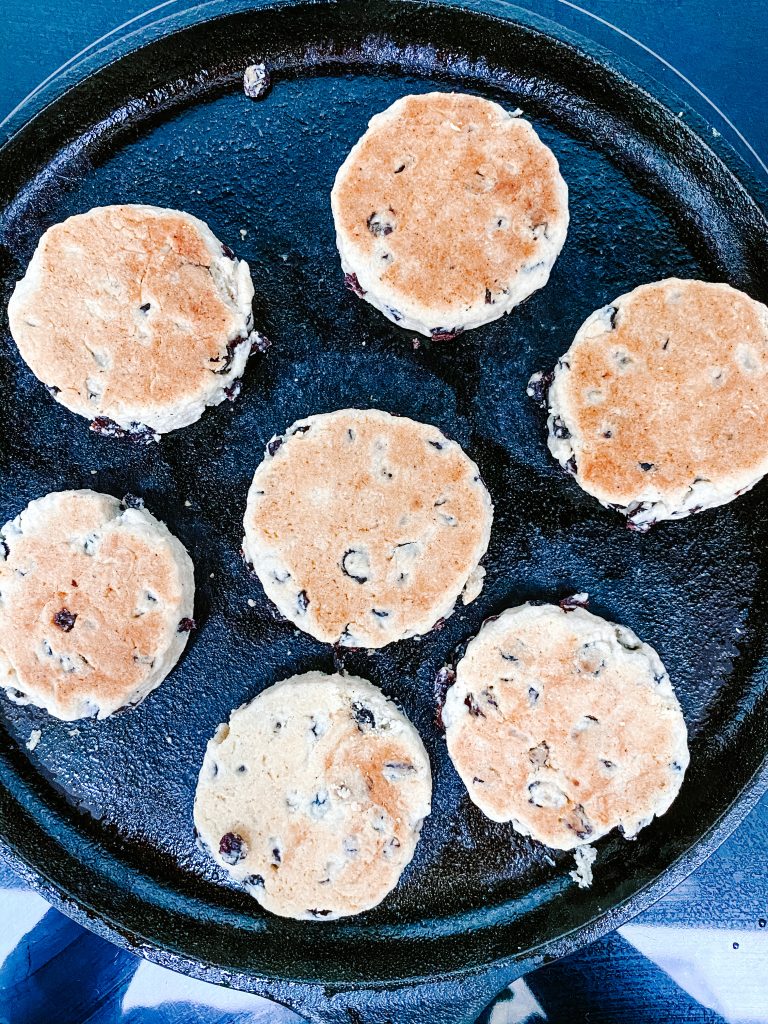
… on each side. 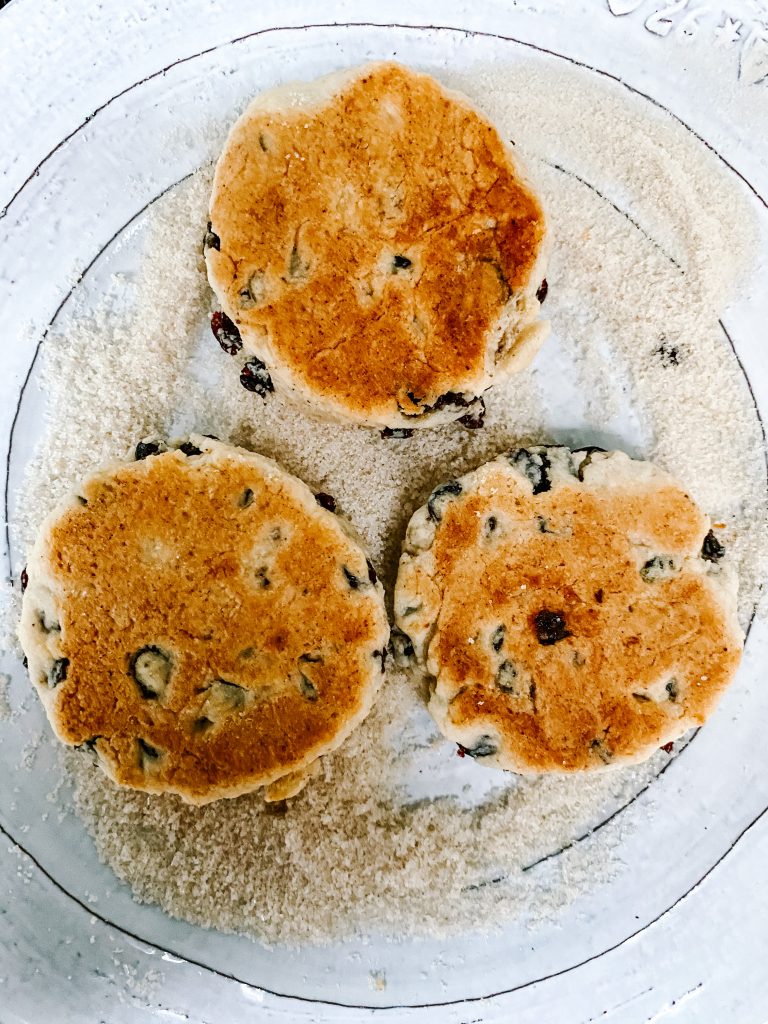
10 When cooked cover in sugar 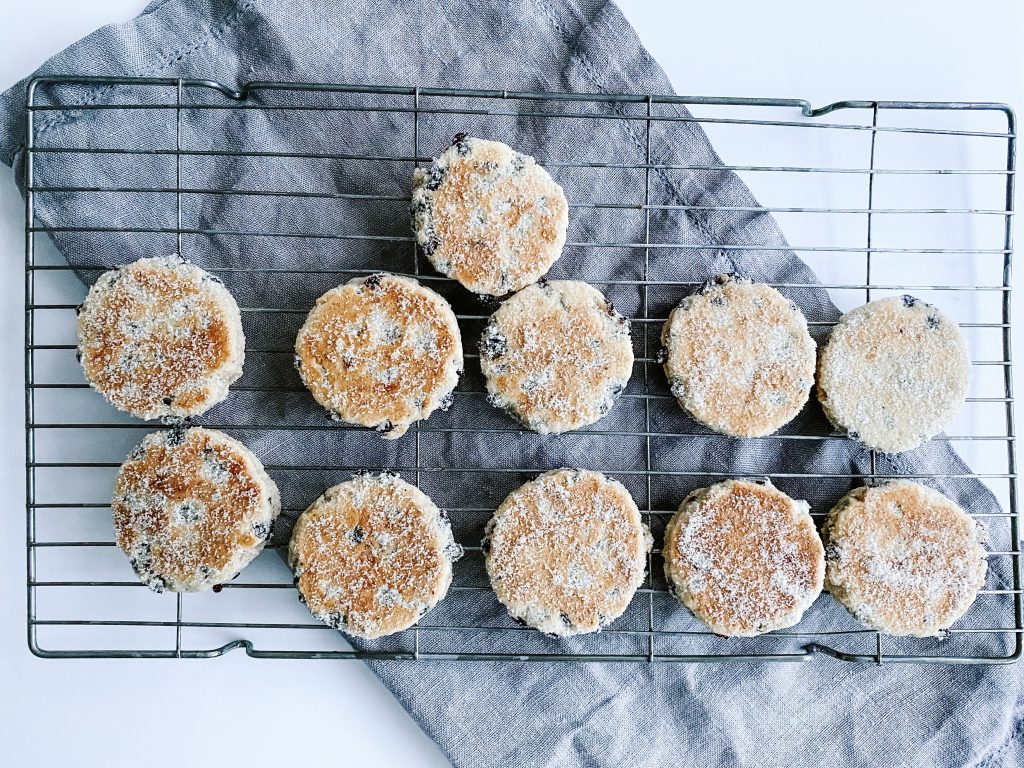
Made this recipe?
If you make this recipe, do please tag me on instagram @daffodil_kitchen. You could also leave a comment in the box directly below the recipe.

Welsh Cakes
Made from flour, butter, sugar, currants, egg and a dash of milk, they are similar to scones. However, they are cooked on a griddle or bake stone, and out of necessity, are thinner, so that they can be cooked through without burning. Makes 24 – 25
Ingredients
- 250g plain/all-purpose flour
- 2 teaspoons baking powder
- ¾ teaspoon grated nutmeg – or use mixed spice and/or cinnamon (optional)
- ¼ teaspoon fine salt
- 100g unsalted butter, fridge cold and cubed
- 25g lard or vegetable shortening, fridge cold and cubed
- 75g caster sugar
- 1 – 1½ tablespoons milk
- 1 large egg
- 125g currants, or you can use sultanas and/or raisins
- vegetable or groundnut oil or a small knob of butter
- extra caster or granulated sugar to dip the Welsh cakes into when cooked
Instructions
-
Collect together your equipment (see Recipe Notes below) and ingredients.
-
Put the flour, baking powder, spice, (if using) and salt into a food processor. Add the butter and lard and process until you get fine breadcrumbs.
-
Add the sugar and pulse until well mixed.
-
Beat the egg with 1 tablespoon milk, add to the flour mixture and process until the mixture starts to comes together. Add the remaining ½ tablespoon milk, only if necessary.
-
Tip the mixture out of the food processor onto a lightly floured work surface, add the dried fruit to the centre of the ingredients and mix in with your hands as you bring the dough together into a ball.
-
Roll out to approximately 5mm to 7.5mm thick and cut out your Welsh cakes with a cutter. I use a 6cm/2.5in cutter but you can make them smaller or bigger. Re-roll and cut out any leftovers. If the dough feels like it is sticking onto the work surface, release with a palette knife before cutting out.
-
This mixture makes around 24 – 25 Welsh cakes, depending on the size of the cutter you use. They are best eaten fresh, so I cook only what we will eat that day. The remainder, I either freeze or keep covered in the fridge, separating each cake with a small square of baking parchment.
-
To cook: lightly grease the base of a cast iron griddle or baking stone or you can use a heavy frying pan. I use a little (around ½ – 1 teaspoon) oil, which I drizzle on and then wipe around with kitchen paper. You can also use a small knob of butter.
-
Heat the pan on a medium to medium-low heat. When hot, cook just 1 cake to see if the pan is at the correct temperature. I like to cook the cakes on a medium heat initially (later turning it down to medium-low) for roughly 2½ – 3 minutes on each side until lightly browned and cooked through. If you cook them for less, the inside may not be cooked and if you cook them for much longer, they can dry out.
-
If the cakes are cooking too quickly, turn the heat down – your pan will heat up, the more you cook, so keep an eye on it and adjust the heat to ensure you are cooking for 2½ – 3 minutes per side!
-
When cooked, immediately transfer to a plate with caster sugar and cover both sides. Eat as fresh as possible – they are gorgeous whilst still warm – either as they are, or with butter and/or jam.
Recipe Notes
Equipment:
- kitchen scales and measuring spoons
- food processor
- rolling pin
- 6cm/2.5in pastry cutter – or your preferred size
- griddle, bake stone or large heavy frying pan
You May Also Like
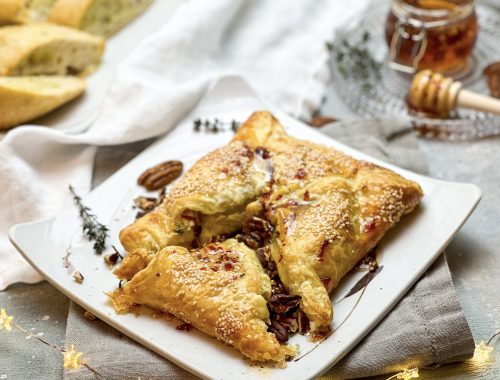
Camembert Baked in Puff Pastry and Served with Roast Pecan Nuts and Chilli Honey
28th November 2021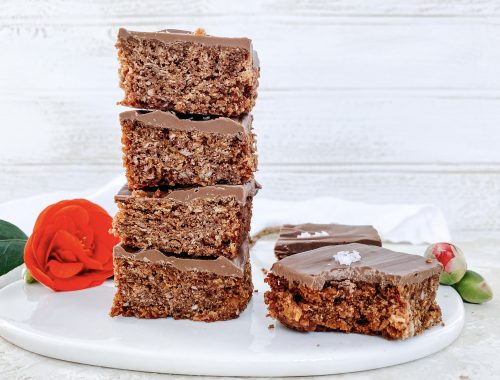
Australian Crunchy Bars
2nd May 2021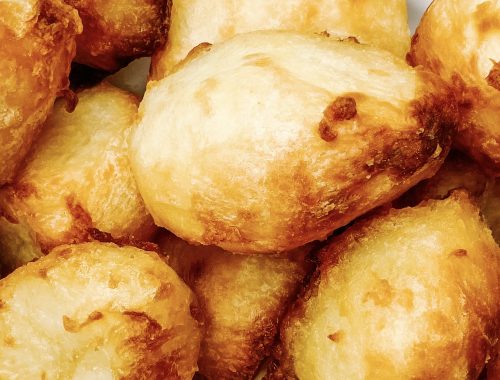
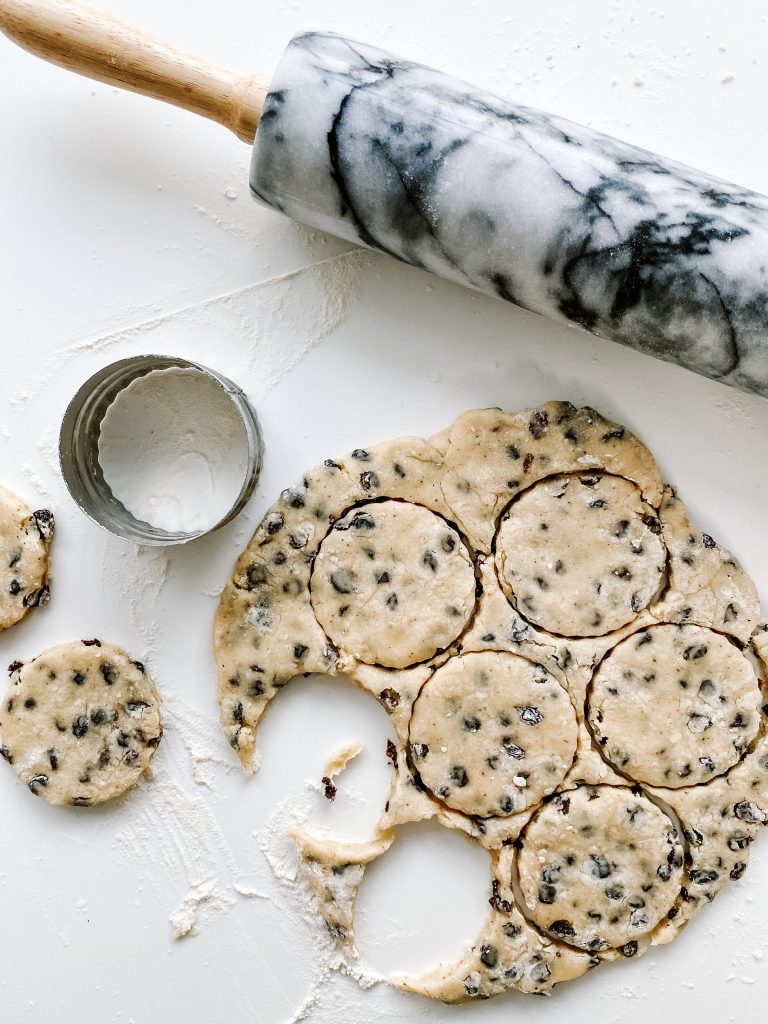
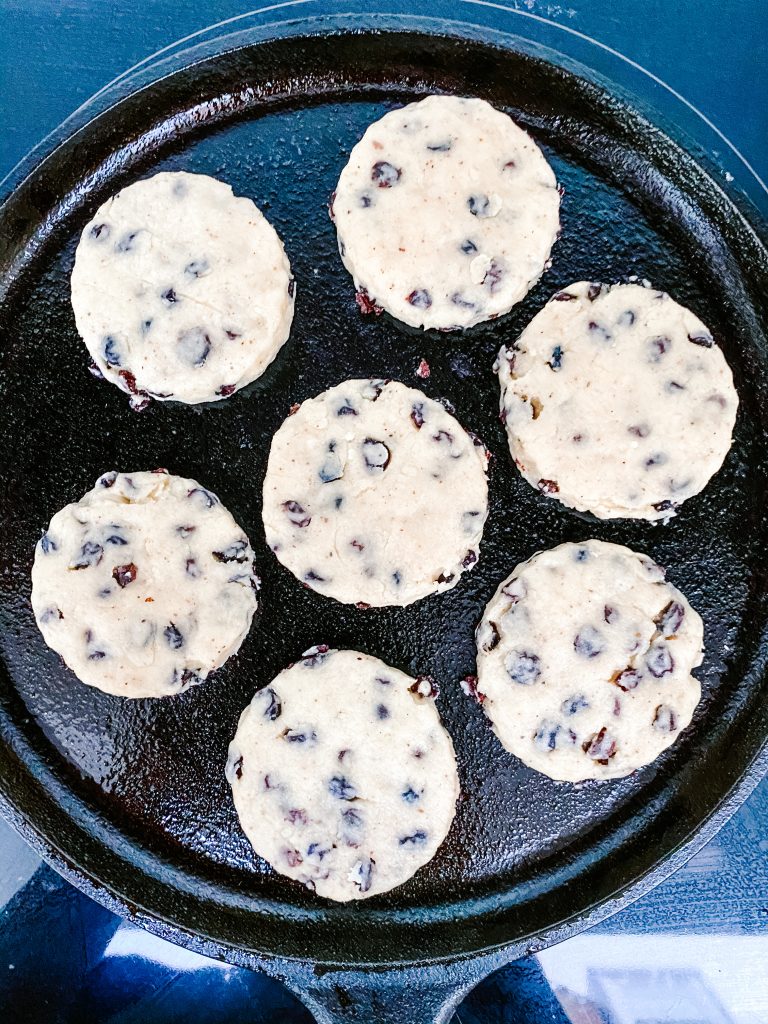
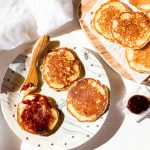
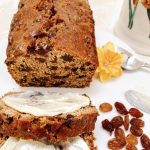

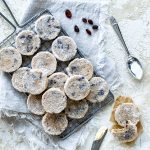
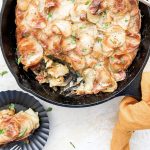
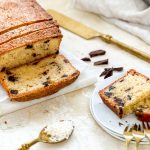


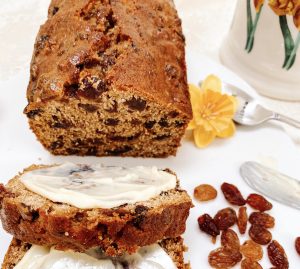
One Comment
Ivy Price
Your instructions are impeccable Susan.You do spend a lot of time getting it all done so beautifully.